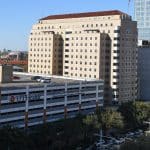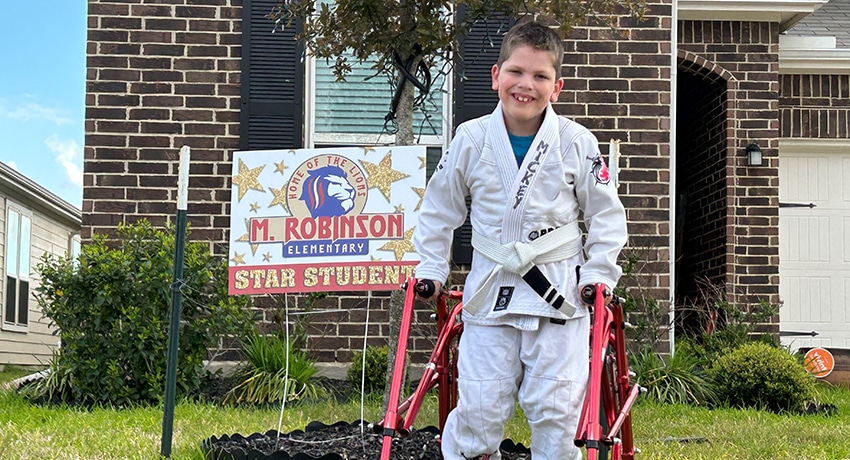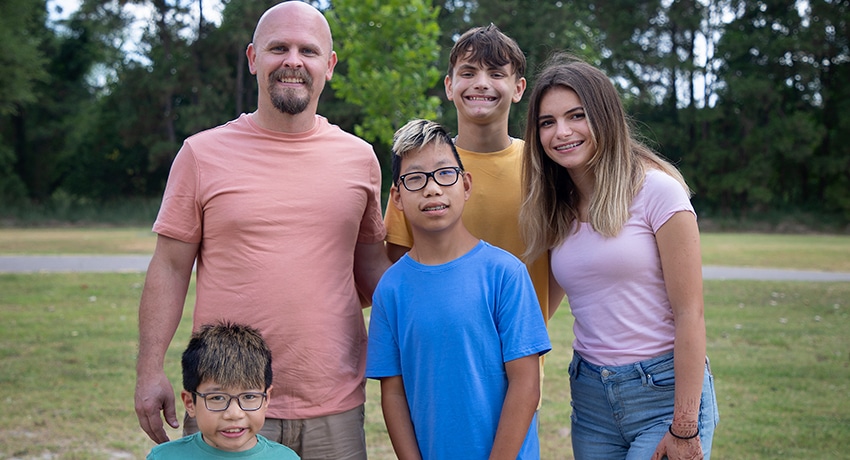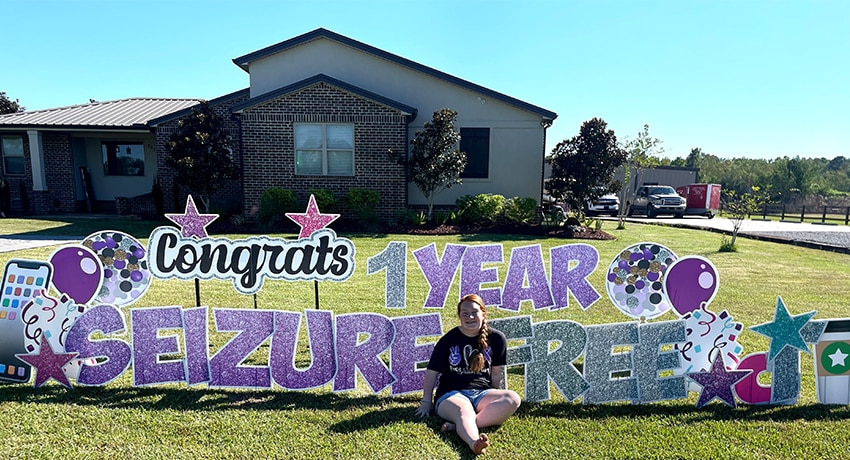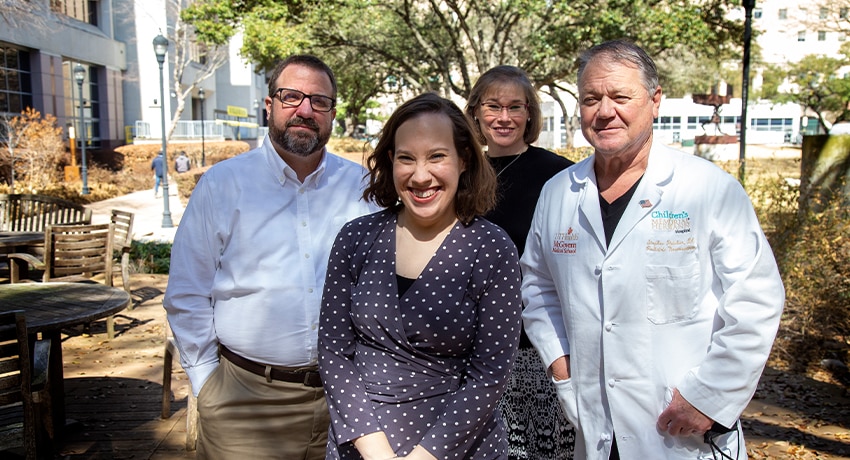UT Physicians pediatric neurosurgeons specialize in the evaluation, diagnosis, and treatment of children with a broad range of neurological disorders, including brain tumors, epilepsy, hydrocephalus, spasticity, spina bifida, and head injury. The team combines the expertise of pediatric specialists and subspecialists to ensure young patients receive coordinated, evidence-based care and the best possible clinical outcomes.
Traditional and Minimally Invasive Surgery
By utilizing the most advanced imaging technologies designed specifically for pediatric patients – including MRI, CT, PET, MEG, stereo-electroencephalography (SEEG), deep brain stimulation (DBS) and responsive neurostimulation (RNS) – neurosurgeons are able to identify and treat specific areas of the brain and significantly lower the risk of complications. When traditional surgery is required, endoscopic techniques are often used to reduce incision size and scarring for patients who are candidates.
The neurosurgical team is recognized for performing state-of-the-art, minimally invasive procedures, including selective dorsal rhizotomy (SDR), neuroendoscopy and stereotactic radiosurgery. These groundbreaking procedures routinely result in less pain and a quicker recovery time, allowing patients to return to school, family life and daily activities sooner than traditional open surgeries.
Patient Care
The six-bed pediatric neuroscience pod at Children’s Memorial Hermann Hospital offers patients dedicated intermediate nursing care specifically tailored to their needs. This enables Children’s Memorial Hermann Hospital to provide complex care, neurological exams and specialized treatment. The nursing staff is also chemotherapy certified and able to provide infusions to patients without moving them to another location. In the event of an emergency, the hospital’s emergency department and operating room teams have logged impressive times for moving a patient quickly through assessment and imaging to life-saving treatment.
Scope of Expertise
Our board-certified pediatric neurosurgeons are leaders in providing the most advanced treatments for a full spectrum of conditions, including:
- Arachnoid cysts
- Arteriovenous malformation (AVM)
- Brain tumors
- Cerebral palsy
- Chiari malformation
- Congenital malformations
- Craniofacial disorders, including craniosynostosis
- Epilepsy surgery
- Fetal neurosurgery
- Head and spine trauma
- Hydrocephalus
- Moyamoya disease
- Myelomeningocele and other congenital spinal anomalies (spina bifida)
- Pediatric stroke
- Peripheral nerve disorders (brachial plexus disorders)
- Selective Dorsal Rhizotomy (SDR)
- Spasticity
- Spinal cord tumors
- Tethered spinal cord
- Tuberous sclerosis complex
- Vascular malformations
Research
As faculty members at McGovern Medical School, our team of pediatric neurosurgeons have pioneered novel techniques for treating malignant brain tumors in children through local drug delivery directly into the brain. The research has led to several open, FDA-approved clinical trials for children with recurrent, malignant brain tumors. Qualified patients are able to enroll in a range of clinical trials for both investigational drugs and procedures.
Qualified patients are able to enroll in a range of clinical trials for both investigational drugs and procedures.
The neuromuscular program is focused on providing the latest state-of-the-art clinical care to the patients with neuromuscular disorders. As part of the only Center of Excellence in Texas, our group of neuromuscular faculty will provide expert diagnosis and management of inflammatory neuropathies for patients who are unable to consult with medical experts in the field in their own communities. The center specializes in the diagnosis and treatment of Guillain-Barré syndrome (GBS) and chronic inflammatory demyelinating polyneuropathy (CIDP) and variants.
Guillain-Barré Syndrome (GBS)
GBS is an autoimmune disorder affecting peripheral nerves. GBS is the most common cause of acute flaccid paralysis in the world. The symptoms start rapidly and typically include numbness and tingling and weakness that often start in the legs and spread to other parts of the body including arms, respiratory, and facial muscles. In some patients, this is a life threatening condition due to weakness of respiratory muscles and autonomic disturbances affecting heart and blood pressure. About one-third of the patients require respiratory support with a ventilator during the course of GBS. Virtually all patients diagnosed with GBS require admission to the hospital. Nerve conductions, lumbar puncture, and blood work up are performed to confirm the diagnosis and exclude other conditions that can mimic GBS. There are two immunomodulatory treatments, plasma exchange and IVIG, which have been shown to be beneficial in clinical trials that are administered to patients with GBS.
Chronic Inflammatory Demyelinating Polyneuropathy (CIDP)
CIDP is a chronic disorder affecting peripheral nerves. This is also considered an autoimmune disease in which immune effectors attack and injure covering of the nerves called myelin. Clinically, patients experience progressive muscle weakness, sensory disturbances such as tingling and numbness, and walking difficulty. In typical cases, symptoms progress over two or more months. Neurological evaluation include nerve conduction and EMG test, spinal tap, blood and urine testing, and in some cases nerve and muscle biopsy to confirm the diagnosis and exclude other conditions that can resemble CIDP. Chronic treatment is often necessary and primary medications include corticosteroids such as prednisone, IVIG, and plasma exchange. In some patients, use of chemotherapeutic agents is necessary to control the disease. In the majority of patients, work up and treatment can be performed on an outpatient basis.
Scope of Expertise
- Immune-mediated Neuropathy
- Neuromuscular Disorders
- Neuromuscular Junction Disorders
- Neuropathology
- Polyneuropathy
- Peripheral Nerve Injuries
- Plexus Disorders
Procedures
- Nerve Conduction Study and electromyography (EMG) for evaluation of peripheral nervous system, neuromuscular junction, and muscle disorders
- Nerve and muscle biopsies
Research
As faculty members at McGovern Medical School, our team is working to solve the greatest medical challenges of our time.
Qualified patients are able to enroll in a range of clinical trials for both investigational drugs and procedures.
Visit our clinical trials information to learn more or please contact us at (713) 500-7363.
If you would like to meet with a UT Physicians neurosurgeon, please click below and use the online tool to help us contact you.
Refer a Patient or Make an Appointment
Contact a Specific Specialty:
- To contact the UT Physicians Pediatric Surgery Clinic, please call (832) 325-7242.
- To contact the Texas Comprehensive Spasticity Center, call (832) 325-7242.
- To contact the Pediatric Brain Tumor program, please call (832) 325-7242.


